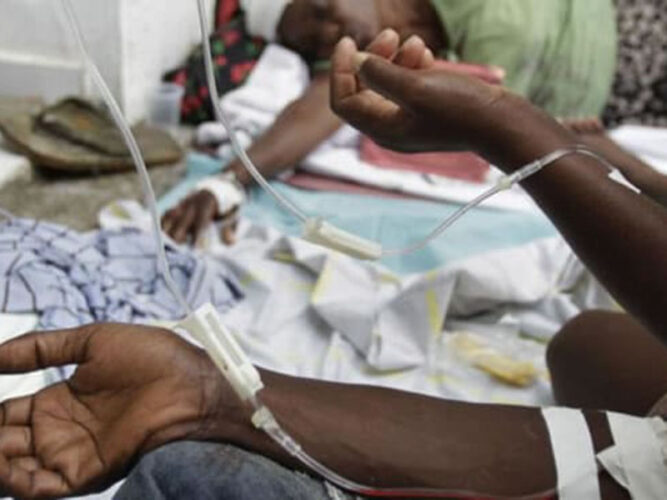The Nigeria Centre for Disease Control (NCDC) has confirmed that the cholera outbreak has now spread to 33 states, with 63 deaths reported in recent weeks, further exacerbating the already critical situation in Nigeria. This information was disclosed on Tuesday during a press conference in Abuja by Dr. Jide Idris, the Director General of the NCDC.
Dr. Idris highlighted a significant rise in cases since the last NCDC report on June 24, which noted the pandemic in 31 states, 107 LGAs, and 54 deaths. He mentioned that nearly 90% of the reported cases are concentrated in 10 states: Lagos, Bayelsa, Abia, Zamfara, Bauchi, Katsina, Cross River, Ebonyi, Rivers, and Delta.
To tackle the outbreak, Dr. Idris announced the establishment of the National Cholera Multisectoral Emergency Operation Centre (EOC), which enlists professionals for strategic coordination. The center convenes daily to provide stakeholders with periodic situation reports.
"This has ensured effective mobilization, harmonization, and distribution of resources to support the affected states," Dr. Idris said. The response covers various areas including coordination, surveillance, case management, infection prevention and control, risk communication, community engagement, water sanitation and hygiene, vaccination, logistics, and research, with a costed incidence action plan developed and being implemented.
He expressed optimism that these measures would expedite communication, data analysis, and decision-making. They will ensure the proper allocation of resources, strengthen surveillance and diagnostic capabilities, improve patient care, and enhance public awareness and community engagement initiatives.
Dr. Idris also noted that before the activation of the EOC, the NCDC had assessed cholera preparedness in 22 high-risk states through the National Cholera Technical Working Group. The states were informed of identified gaps to direct their pre-epidemic preparedness efforts.
He urged all stakeholders, including government agencies, subnational actors, partners, civil society organizations, medical professionals, local leaders, and citizens, to intensify efforts to contain the disease and prevent further fatalities. Additionally, he reminded medical professionals to always use gloves when handling patients and emphasized the importance of stepping up surveillance to promptly report suspected cholera cases.









